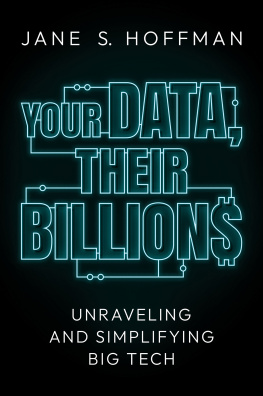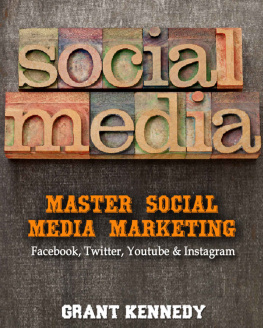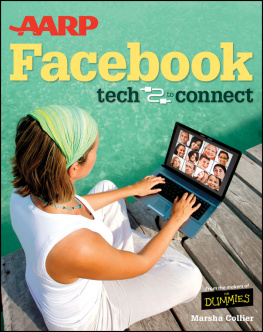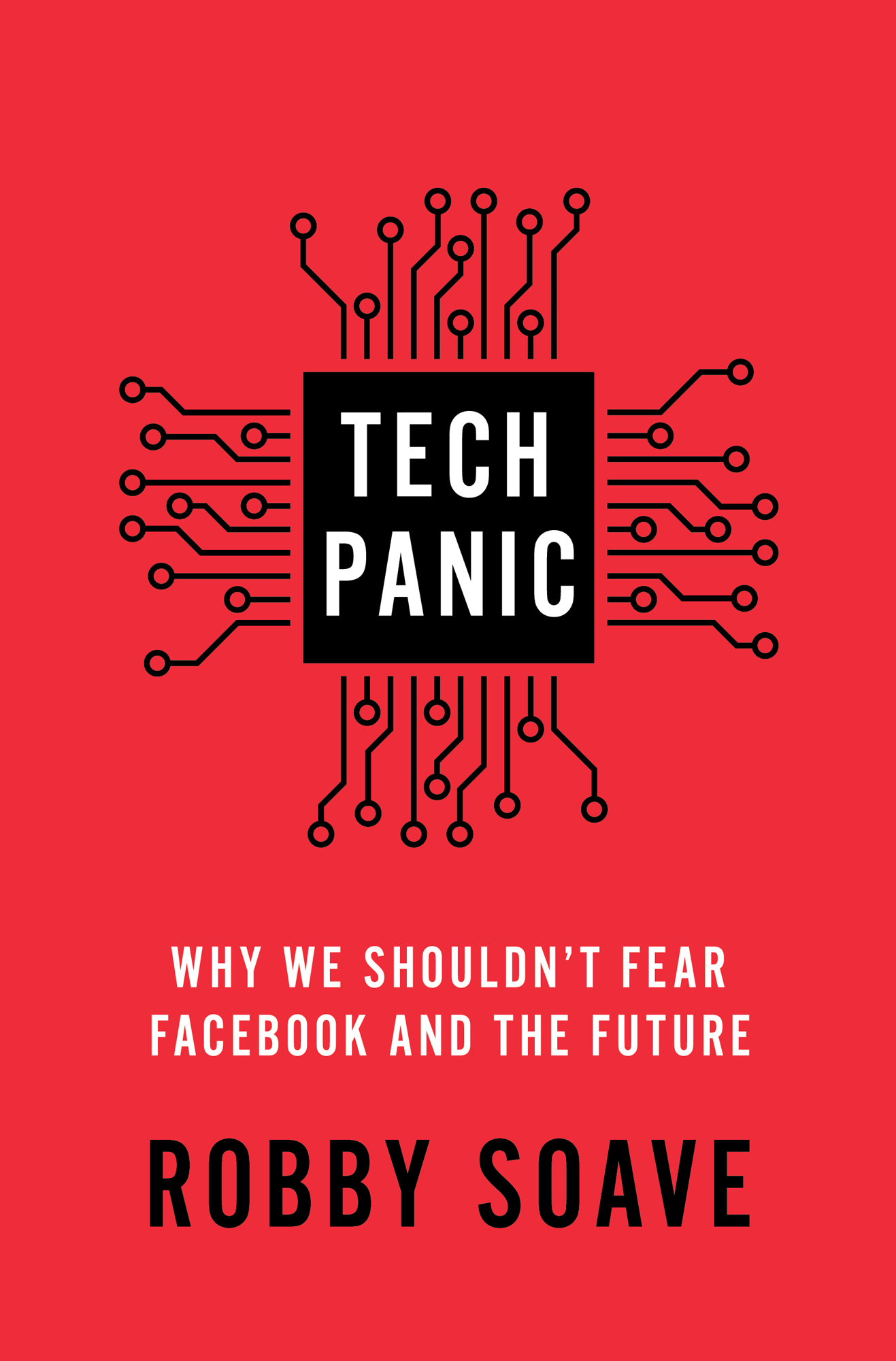Contents
Guide
Tech Panic
Why We Shouldnt Fear Facebook and the Future
Robby Soave
ALSO BY ROBBY SOAVE
Panic Attack: Young Radicals in the Age of Trump

Threshold Editions
An Imprint of Simon & Schuster, Inc.
1230 Avenue of the Americas
New York, NY 10020
www.SimonandSchuster.com
Copyright 2021 by Robby Soave
All rights reserved, including the right to reproduce this book or portions thereof in any form whatsoever. For information, address Threshold Editions Subsidiary Rights Department, 1230 Avenue of the Americas, New York, NY 10020.
First Threshold Editions hardcover edition September 2021
THRESHOLD EDITIONS and colophon are trademarks of Simon & Schuster, Inc.
For information about special discounts for bulk purchases, please contact Simon & Schuster Special Sales at 1-866-506-1949 or .
The Simon & Schuster Speakers Bureau can bring authors to your live event. For more information, or to book an event, contact the Simon & Schuster Speakers Bureau at 1-866-248-3049 or visit our website at www.simonspeakers.com.
Jacket illustration by Adobe Stock
Author photograph Mark Meranta
Library of Congress Cataloging-in-Publication Data
Names: Soave, Robby, author.
Title: Tech panic : why we shouldnt fear Facebook and the future / Robby Soave.
Description: New York : Threshold Editions, [2021] | Includes bibliographical references. | Summary: From award-winning journalist and author of the methodical, earnest, and insightful (The Guardian) Panic Attack, an examination of recent knee-jerk calls to regulate Big Tech from both sides of the aisleProvided by publisher.
Identifiers: LCCN 2021012262 (print) | LCCN 2021012263 (ebook) | ISBN 9781982159597 (hardcover) | ISBN 9781982159603 (paperback) | ISBN 9781982159610 (ebook)
Subjects: LCSH: InternetSocial aspects. | Information technologyPsychological aspects. | High technology industriesForecasting. | Technology and state. | Computer anxiety. | United StatesPolitics and government2017
Classification: LCC HM851 .S565 2021 (print) | LCC HM851 (ebook) | DDC 302.23/1dc23
LC record available at https://lccn.loc.gov/2021012262
LC ebook record available at https://lccn.loc.gov/2021012263
ISBN 978-1-9821-5959-7
ISBN 978-1-9821-5961-0 (ebook)
For Del, my friend and neighbor
INTRODUCTION FEAR OF THE FUTURE
I have always valued my lifelessness.
Tik-Tok (the early-twentieth-century L. Frank Baum character, not the early-twenty-first-century social media platform)
Between my freshman and sophomore years of college, I had what was to be my firstand lastreal job outside of the field of journalism: I sold cable, door-to-door, for Comcast. This was during the summer of 2007, in the middle-class suburbs of Detroit, Michigan.
Some people are natural salesmen. Most are not. I fell into this larger, latter category. Selling cable was hard.
My mostly unsuccessful foray into the world of door-to-door sales occurred at the time of the U.S. transition from analog to digital television. Hailed as the most significant innovation in the television space since color TV, digital cable offered better picture quality than an analog connectionwhich used an antenna, satellite dish, or other transmitteras well as more channels. When Congress passed the Telecommunications Act of 1996 into law, they had specified December 31, 2006, as the date that all analog television transmission in the country would cease. That date was later changed to December 31, 2007, and finally to February 8, 2009.
Due to various government subsidies and corporate promotions, the cost of the conversion was heavily discounted for customers: In fact, Comcasts upgrade from analog to digital was free for customers. You might think it would be easy to sell something that was better and free. Not for me. Wherever I went, suspicion followed. The people who answered their doors generally didnt want to talk about the amazing new products Comcast had to offer, or anything elseand if they did want to talk, they mostly had a list of grievances to rattle off: outages, connection troubles, billing irregularities. (It probably didnt help that Comcast has a reputation for notoriously poor customer service, and is frequently ranked among the most hated companies in America, according to consumer surveysa reality I came to understand all too well as I peddled the companys services.)
You would have thought I was selling dead animals, rather than free access to a superior technology that would soon be mandated across the country. I eventually learned things went more smoothly if I didnt even present the upgrade as a choice, and instead led with some version of: On what day would you like this installed?
One encounter with a customer still sticks in mind, more than a dozen years later. She was a middle-aged woman, and I didnt have to knock on her door. She sat on her porch, glaring at me as I approached in my lime green Comcast polo shirt, clipboard in hand. (I used it to take orders, fill out customer satisfaction surveys, and occasionally, as a shield.) She was skeptical about the digital upgrade, and furious in general. She had a number of problems with her service, and her bill. Worst of all, the remote control for her TV was broken. I sympathizedI still sympathize! Its an infuriating problem to have. (My Verizon FIOS remote stopped working recently; I eventually gave up on trying to procure a replacement via the byzantine FIOS website, and instead bought a new one from Amazon, which speaks volumes about that companys comparative convenience.)
The womans remote was either her main issue, or had come to represent all that was wrong with her cable service. She went back inside and then returned with the faulty device, wielding it like a medieval battle mace.
Maam, youre in luck, I told her. The upgrade I was offeringthe free upgradewould automatically come with a new, better remote. And I will never forget the look of pure revulsion she gave me, as if I had threatened her with bodily harm.
Now, what the hell, she said, clutching the item ever more tightly, would I do with a new remote?
My irate Comcast customer is in good company. Many people have an innate distrust of new technology. We like to complain about our stuff, but we also tend to prefer things just the way they are, thank you very much.
This is especially true of innovations in human communication. Mankind is a social animal, and thus in theory we welcome new methods of holding conversations across vast distances. But we also tend to worry that new technology is corrupting something human or genuine about day-to-day social interaction.
In fact, every new invention that expands the communicative space has been accompanied by concerns and hand-wringing about the potential for misuse and abuse. Historically, many of these complaints are precisely the same ones we hear today: Technology has made us addicted to it.
In 1936, for instance, the government of St. Louis, Missouri, tried to ban car radios because a determined movement had become convinced that the radio distracted drivers and caused accidents. Indeed, contrary to how ubiquitous the radio would become, it was widely feared by newspapers, which were competitors and had every incentive to sensationalize the dangers of radio.











